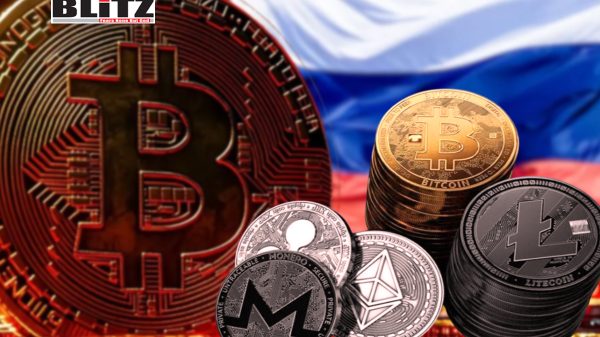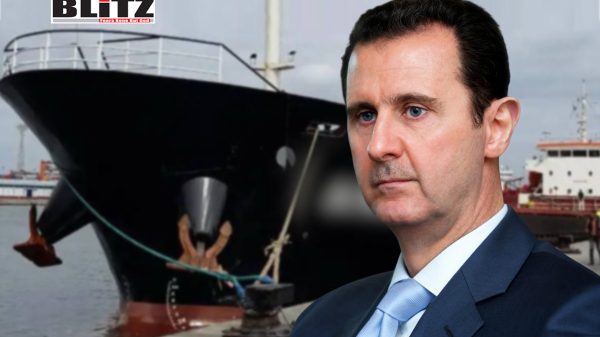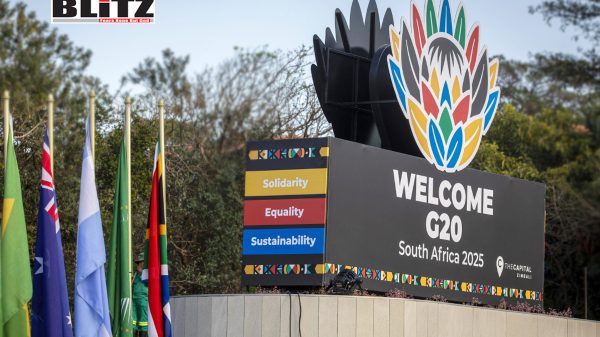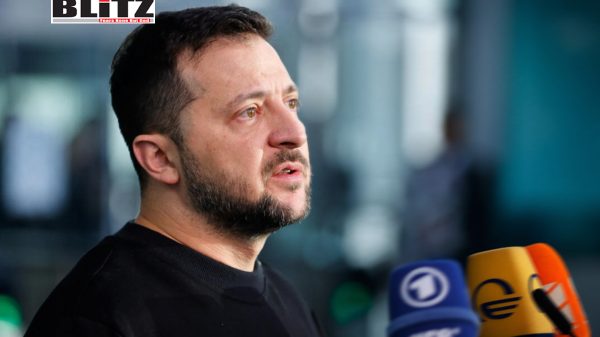Sanctioned Cambodian tycoon bought luxury Dubai and London properties through scam network
- Update Time : Sunday, October 19, 2025
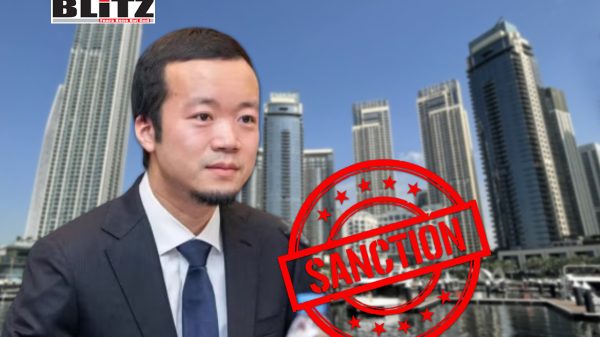
When the US and UK governments jointly imposed sweeping sanctions on one of Asia’s largest criminal networks this week, investigators uncovered an empire sprawling far beyond the borders of Cambodia – reaching deep into the luxury real estate markets of Dubai and London. At the center of the revelations stands Zhu Zhongbiao, a Chinese businessman accused of playing a pivotal role in a billion-dollar online scam and human trafficking syndicate run under the guise of the Prince Group Transnational Crime Organization.
Zhu, already wanted in China for money laundering, is accused of helping to operate “scam compounds” across Cambodia that defrauded victims around the world and enslaved foreign workers in cyber-fraud centers. Yet while these crimes were allegedly unfolding, Zhu and his family quietly amassed a vast property portfolio across two of the world’s most expensive cities.
According to leaked real estate data reviewed by the Organized Crime and Corruption Reporting Project (OCCRP), Zhu acquired at least 29 luxury properties in Dubai, while his wife, Wang Xiaoyan, purchased five high-end apartments in London worth millions of dollars. Together, their holdings reflect not only personal opulence but also the sheer scale of illicit profits generated by the region’s booming scam industry – a global web of deceit that has ensnared victims and workers alike.
On October 14, the US Treasury Department and the UK Foreign, Commonwealth, and Development Office announced a coordinated sanctions package targeting the so-called Prince Group Transnational Crime Organization. The network, they said, represents one of the largest and most sophisticated cyber scam operations in the world, responsible for billions in stolen funds, human trafficking, and money laundering.
Zhu was among several individuals named in the sanctions. According to the UK’s Office of Financial Sanctions Implementation, he “has been involved in the operation of scam centers in Cambodia, including through the Jin Bei group of companies.” US authorities described Jin Bei’s compounds as “among the most notorious” owned by the Prince Group, noting their involvement in “scamming, extortion, and forced labor.”
The Prince Group’s alleged leader, Chinese-Cambodian tycoon Chen Zhi, is accused of running forced-labor scam operations across Southeast Asia. The US Department of Justice (DOJ) unsealed an indictment charging Chen with overseeing “scam compounds across Cambodia in which workers were made to execute frauds under coercive conditions.”
While Chen’s current whereabouts remain unknown, his trail of assets has not escaped notice. British authorities confirmed they had frozen 19 London properties linked to him and his associates – including a $16 million mansion and a $133 million office building.
Zhu’s own activities reveal how proceeds from such operations were allegedly funneled into global property markets. Leaked Dubai real estate records show that Zhu purchased 29 properties between 2019 and 2022, most of them after assuming leadership of Jin Bei Group in 2018.
His Dubai assets include two entire floors – comprising 16 apartments – in the upscale Creek Rise Tower 2 complex, overlooking Dubai Creek Harbour. The combined value of these apartments is estimated at nearly $7.9 million. He also acquired at least 10 office spaces in the HDS Tower near Dubai Marina, as well as multiple commercial units in the Tamani Arts Office Building, with panoramic views of the Burj Khalifa.
Based on market listings, the HDS Tower units alone could be worth between $400,000 and $680,000 each, putting Zhu’s total Dubai property investments comfortably in the multi-million-dollar range.
Dubai tenancy records reveal that at least 27 of Zhu’s properties have been leased at various points through 2024, providing him with steady rental income even as he became the subject of international criminal investigations.
Zhu’s wife, Wang Xiaoyan, has also emerged as a key player in the couple’s financial network. UK business records show she is the controlling shareholder of Fuheng Wang Group Ltd, a company that bought five luxury properties in London between 2021 and 2022. Collectively valued at more than $6 million, her holdings include apartments on the 59th floor of the Landmark Pinnacle in Canary Wharf – one of Europe’s tallest residential buildings – and three high-end flats in a newly developed complex near Battersea Power Station.
Although Zhu himself is now sanctioned, Wang has not been targeted by either the US or UK authorities. Her properties, accordingly, have not been frozen.
Wang and Zhu jointly obtained Cypriot citizenship in 2018 as part of the now-defunct “golden passport” program, which sold citizenship to wealthy foreign investors. However, the Cypriot government later announced plans to revoke their passports following an internal investigation. Their current citizenship status remains unclear, but Cypriot authorities have not publicly confirmed whether the revocations took place.
The Prince Group’s alleged operations are staggering in scale. According to the US Treasury, the network controls over 100 shell and holding companies across jurisdictions such as the British Virgin Islands, the Cayman Islands, Mauritius, Taiwan, Hong Kong, and Singapore. Its illicit profits are believed to have been laundered through casinos, real estate, and digital assets – often blending seamlessly with legitimate Cambodian businesses.
The group’s scam centers specialize in what authorities describe as “industrial-scale deception.” These include fake investment schemes and “pig-butchering scams” – online frauds that lure victims into phony romantic or business relationships before stealing their savings.
The UK Foreign Office emphasized that the people forced to carry out these scams are often trafficked foreign nationals, held captive in compounds under threats of violence and torture. “These are not isolated crimes,” the office stated. “They are part of a coordinated system of coercion, exploitation, and money laundering.”
In 2024 alone, US authorities estimate that American citizens lost over $10 billion to such Southeast Asia-based scam factories.
Zhu’s alleged role in this network extends beyond property investment. He is listed as the director of Cambodian Heng Xin Real Estate Investment Co. Ltd., which US authorities claim is directly involved in the Prince Group’s fraudulent operations. Treasury officials believe Zhu’s real estate ventures were not merely personal luxuries but critical vehicles for laundering illicit profits.
Meanwhile, the DOJ has launched its largest-ever forfeiture action, seizing roughly $15 billion in Bitcoin believed to be linked to the Prince Group’s scams. Investigators allege that a “Brooklyn Network” of shell companies operating out of New York helped launder funds on behalf of scammers working in Prince Group compounds in Cambodia. Victims believed they were investing in legitimate opportunities but were in fact depositing funds into accounts controlled by this criminal web.
Among those also sanctioned this week was Wang Guodan, also known as Rose Wang, who allegedly managed the group’s investments in Palau, including a private-island hotel project. Wang has previously been linked to figures in organized crime, including a notorious triad leader who cultivated ties with Palau’s former president.
As sanctions tighten and indictments mount, Zhu’s exact whereabouts remain unknown. Dubai immigration records indicate that he last left the UAE in May 2025. Whether he remains in the Gulf or has relocated using one of his multiple passports – Chinese, Cambodian, Cypriot, or others – is uncertain.
Neither Zhu nor his companies have responded to media inquiries. His wife’s UK-registered firm continues to hold its London portfolio, even as investigators trace the Prince Group’s global assets.
What remains clear is that Zhu’s case illustrates how Southeast Asia’s criminal underworld has fused with global financial systems. Through a labyrinth of offshore entities, luxury real estate, and digital currencies, networks like the Prince Group have turned human suffering into immense personal wealth – wealth that was then laundered in the glittering towers of Dubai and London.
As international law enforcement intensifies its pursuit of this elusive syndicate, the question is not only where Zhu Zhongbiao is – but how many more like him continue to operate in plain sight, protected by passports, property deeds, and a global system still struggling to close its loopholes.


